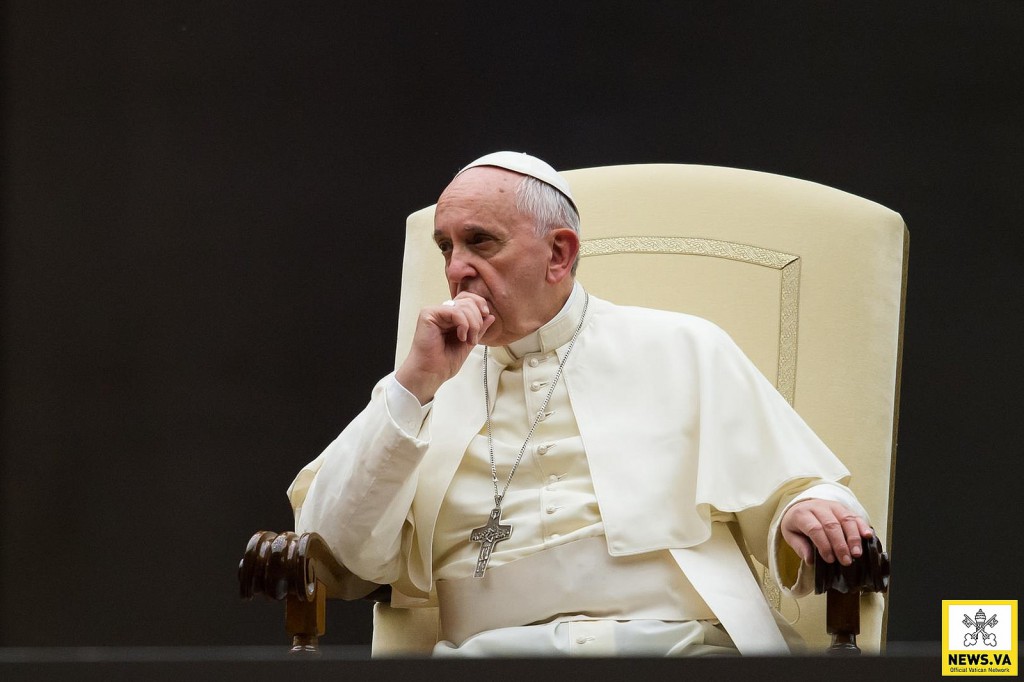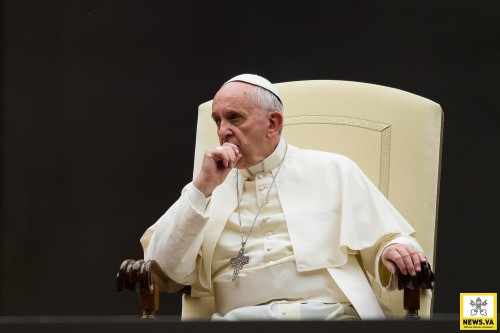11th February 2015
Clerical child sex abuse: making progress but not there yet


The issue of sex abuse of children by priests has accompanied me throughout my mission here since I arrived in Rome in August 2011. As I was preparing to take up the role, it was clear to me that nothing had done more in recent years to damage the credibility of the Holy See, and to undermine its values-based message, in the UK and elsewhere, than its failure to understand the seriousness of the problem, and to grasp the need to do so much more to stop it. Despite Pope Benedict’s meetings with victims on his visits, including in the UK and Malta, and the recognition by some within the Church that much more needed to be done, the collective response still appeared to be one of denial.
There has been so much progress since. In 2011, for the first time, the Holy See asked all bishops’ conferences around the world to draw up guidelines for handling cases of sexual abuse of minors by clerics (96% have now done so). In 2012, the Pontifical Gregorian University organised a landmark conference that listened to victims and focused on what the Holy See had to do to respond to their demands. Pope Francis established a new Pontifical Commission for the Protection of Minors in March 2014, and last July met victims in the Vatican and heard their stories. As the Pope wrote last week in a letter to Church leaders around the world, the only proper response is to focus on the victims and their needs: “priority must not be given to any other kind of concern, whatever its nature, such as the desire to avoid scandal, since there is absolutely no place in ministry for those who abuse minors”.
The progress is welcome. But it is clear that it needs to go further, and faster. There is no room for complacency. I have sometimes been told that this is essentially an historical problem and that now that better controls on the selection of candidates for the priesthood have been implemented, it should not reoccur. That’s neither the right answer, nor the right message, as members of the Commission including Peter Saunders, an abuse victim and CEO of the National Association for People Abused in Childhood, and Baroness Hollins from the UK have told me. So much more needs to be done, to help those victims who are still coming forward, and to ensure that future generations of children are safe. It is good that the Pope has called on all Church leaders, especially diocesan bishops, to provide “close and complete cooperation with the Commission for the Protection of Minors”. That is the least that they can do.
No one recognises the spiritual damage and abuse
A priest abusing a child is something that always was beyond my imagination. When I first learned about it, in the Poland of the eighties, I was shocked toi the deepest recesses of my soul. With my last saved money, I travelled to the Vatican, to ask, how this was possible. I was not treated well. I went back to Poland, disappointed. I always wanted to be a priest, because priesthood was synonymous for me with being holy. But the Church authorities, always, told me that “God didn’t call you.” In the Seminary where I studied, one of our professors was a gay come-out-of-the-closet. I complained to Church authorities, since I knew that there was a link between homosexuality and pedophilia. Again, I was the one foud to be “unholy.” When I protested that one of our nuns was funding three thousand abortions for the poor women, in Detroit, again, the authoritiews turned against me! I could go on for hours the things that I have suffered for asking questions! But it suffices to illustrate why we are today suffering a massive antiwitness in our Church! We kill good vocations and favor the worst, as long as the candidates sing, dance, and have a good voice! No spiritual life is required anymore!
This must totally stop.
Your Excellency, Thank you for your intelligent and balanced assessment with which I concur. The Holy See has consistently stressed the need for the healing of victims to be the priority, but I am afraid this has yet to result in much action from Bishops’ Conferences who still tend to see the problem in terms of liability and scandal. When they do think of help for victims of clerical abuse they think in narrow terms of some talking therapy. All the studies show that this is insufficient, even from a psychological point of view for treating the cases where there is serious PTSD, as there often is. I have launched a ministry of psychological and spiritual healing for abuse victims -please see the above website- but receive no help financially from the Bishops, indeed they are reluctant in some cases even to publicise it. The Bishops’ Conference representative told me that because victims groups are very vociferous it “isn’t the right time” to have such a ministry. As a result we fundraise to carry out our own work. In the US, where the ministry was founded, the same problem occurs. It seems as it the bishops do not want people banding together in case they recover more memories or correlate stories. If you would be interested in learning more about our approach, I would be very happy to give you more information. I am anxious to spread word of our healing programme as widely as possible.
Yours sincerely,
Fr Dominic Allain (International Pastoral Director, Grief to Grace Ministries)